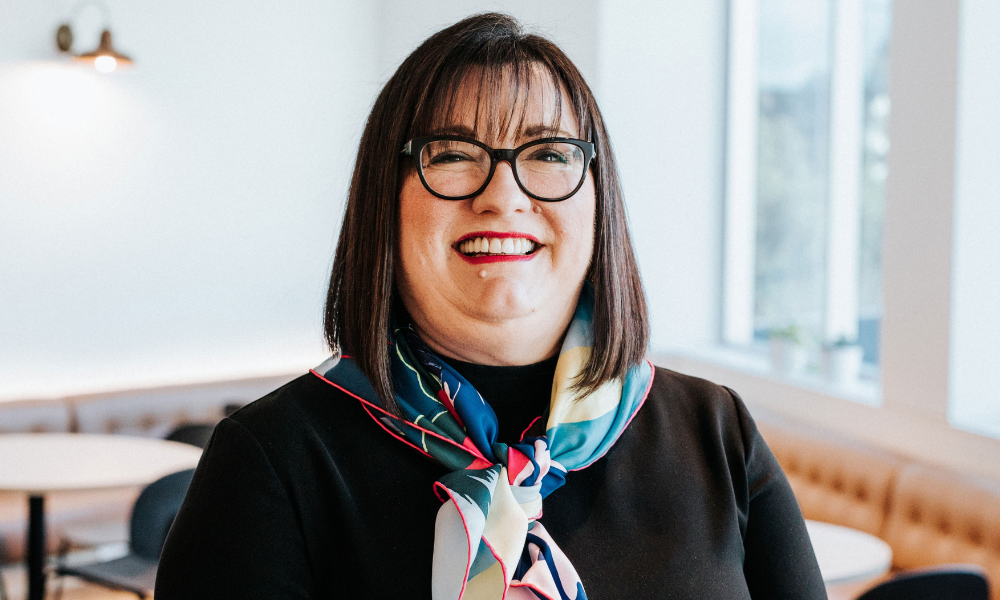
People and performance director Michelle Pombart to speak at upcoming Learning and Development Summit

Career development doesn’t always mean changing a role, says Michelle Pombart, people and performance director of George Weston Foods (GWF).
GWF uses the 70:20:10 model, where 70% of development happens on the job, 20% through coaching, mentoring and feedback, and 10% in formal training.
“We use that model – so 70% of our development happens on the job from a career perspective…but it could be an experience, it could be participation, [it] doesn't necessarily have to be in changing roles to move the dial in your career,” she said.
Pombart, who is one of the speakers at the upcoming Learning and Development Summit, suggested that HR teams should encourage employees to have a broad vision of careers rather than always going for a specific role.
“Chances are that specific role may not become available at the time you need it to become available,” she said. “So, how do you have a broad vision that encapsulates a certain number of roles or areas that you might be interested in rather than just a specific one? Provide tools to help people understand what's driving them and what's motivating them. And that may change over time. Help people swim out of their functional lanes.
“I think we do that a lot here at George Weston Foods for people that we are developing. And we feel that getting exposure outside of their functional role is really important to help them even do their current role better.”
HRD’s Learning and Development Summit will take place at the Swissotel Sydney on October 17. It will be held together with event partner Dynamic Leadership Programs Australia (DLPA).
Pombart will be speaking on the panel titled “Supporting career and talent mobility plans to engage employees.” Fellow panellists include Samantha Alkin, director human resources, Australia & New Zealand Edwards Lifesciences, Gillian Davie director – people & culture AMP, and Sarah Sprott head of learning and development, Village Entertainment.
At the summit, Pombart will discuss the importance of employees developing their internal networks and getting exposure to different parts of the business.
“Exposure is just as important, if not more important than performance,” she said. “Performance gives you a ticket to the game. But the exposure is what escalates that from a career perspective.”
Pombart will also highlight the importance of supporting career mobility within an organisation.
“We really think about roles for people, not only people for roles,” she said. “So how do we build things around people to retain them in the organisation? And we really balance internal succession with bringing in fresh eyes.
While having fresh eyes is really important for GWF, career mobility can be supported through secondments, career experiences, short term assignments and being a part of a community of practice, Pombart added.
“I think it's really important because a) people get new experiences and b) it creates a sustainable business. We retain those people while they keep learning,” she said.
In addition to having networks within an organisation to strengthen career mobility, Pombart mentioned the value of sponsorship.
“Coaching, mentoring and sponsorship [are] quite independent of each other but they're also quite connected as well,” she said. “We have those three roles in our organisation. And of course the sponsorship of someone evolves quite naturally if you're connected with them. A senior leader would be more willing to speak on their behalf, talk about what they can offer the organisation in front of others. And that's what we call sponsorship.”
Being a subsidiary of international food retail group, Associated British Foods, GWF has a suite of tools to help their employees develop in their career.
“There's only very few global tools that we use, but this is one of them. It’s a career conversations masterclass and it's also got a fantastic tool as part of that masterclass, which helps people navigate the network that supports their career,” Pombart said. “It also helps map their personal drivers, which we realise at certain times may change and be different depending on where they are in their career.”
Pombart went on to describe the variety of methods the company uses to support talent mobility.
“We've got a senior group of leaders who are very committed to supporting career and development; personally take the time to spend with our up and coming talent as well as anyone in the organisation who's interested in having a career conversation,” she said.
“We run talent development programs such as Thrive and the very cornerstone of that program is career and development conversations and helping them broaden the network. So unlike some of the more skill-based programs, this is all around sponsorship, career development and exposure.”